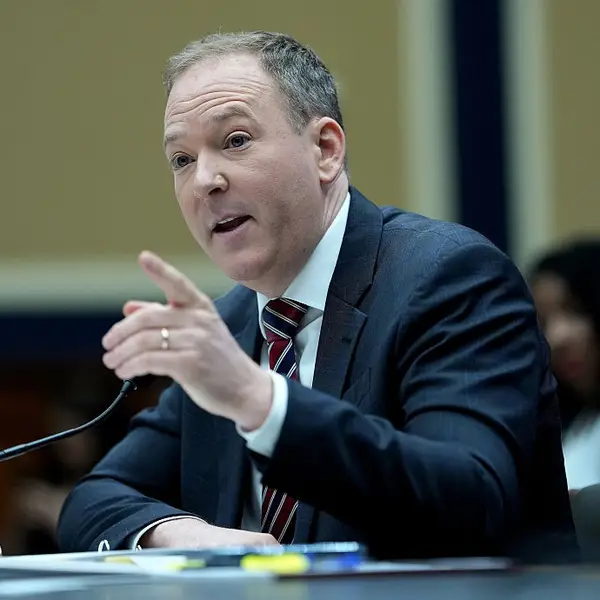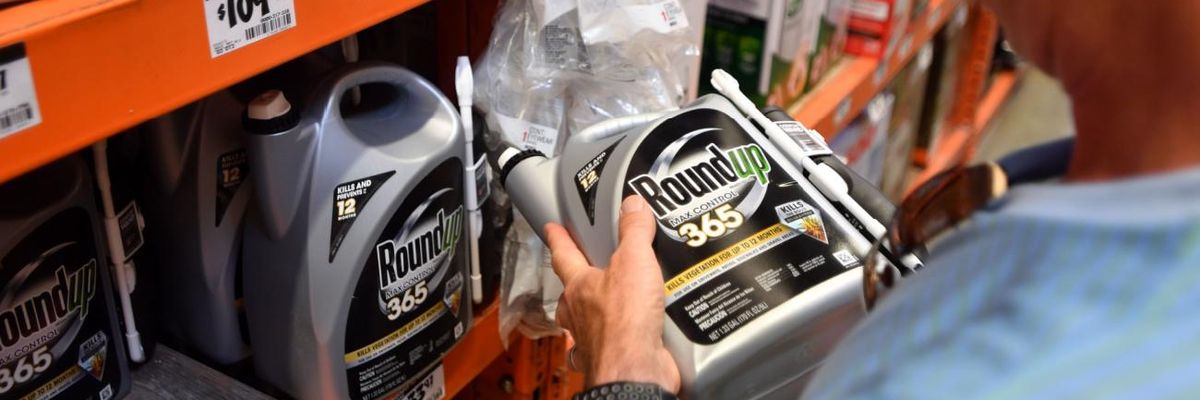"The reckoning for Roundup rolls on."
So said George Kimbrell, legal director of the Center for Food Safety, on Friday after the U.S. Court of Appeals for the 9th Circuit in San Francisco affirmed a lower court ruling against Monsanto (since acquired by Bayer) which found the chemical giant responsible for the cancer suffered by users of its signature herbicide Roundup.
The 9th Circuit rejected an appeal by Bayer in Hardeman vs. Monsanto, in which Edwin Hardeman accused the company of failing to disclose the dangers glyphosate poses to human health. Hardeman was awarded $80 million in the case, which was later reduced to $25 million.
"Today's appeals court ruling is another reminder the Biden administration should act and revoke the registration of glyphosate immediately."
--George Kimbrell, Center for Food Safety
Hardeman was diagnosed with non-Hodgkins lymphoma in 2015 after two decades of using Roundup as an herbicide on his 56-acre property. His case was one of several high-profile lawsuits against Monsanto over its use of glyphosate. The company agreed to pay $10.9 billion to a total of about 125,000 people last year, all of whom alleged the use of Roundup was to blame for their cancer diagnoses.
The Environmental Protection Agency backed Bayer in its latest appeal in Hardeman's case, in which the company claimed the jury verdict should be nullified because states don't have the authority to deviate from federal regulations for herbicides.
The three-judge panel ruled that California's failure-to-warn law was consistent with the Federal Insecticide, Fungicide and Rodenticide Act (FIFRA).
"FIFRA did not impliedly preempt Hardeman's state failure-to-warn claims," the court said.
Bayer also claimed that the World Health Organization's classification of glyphosate as a carcinogen should not have been entered into the court record as evidence. The judges ruled that "that the district court did not abuse its discretion in admitting" the evidence.
The Center for Food Safety, which filed an amicus brief in support of Hardeman last year, called the ruling a major victory "for all those who care about protecting human health and the environment and holding corporations accountable for the harm they cause."
Kimbrell said the group was "gratified that the Ninth Circuit unanimously rejected Monsanto's arguments that Mr. Hardeman and thousands of others harmed by their products are prohibited by federal law from suing to redress their injuries. The Court also properly upheld the reliance on the World Health Organization's classification of glyphosate as a probable carcinogen."
Despite international experts' warnings about glyphosate and decisions by policymakers in Austria, Germany, and other countries to phase out or ban the chemical, the EPA still claims that glyphosate is "unlikely to be a human carcinogen."
"Center for Food Safety is currently challenging the federal approval of glyphosate, the active ingredient in Roundup, as unlawful for a number of reasons--including cancer risks to farmers and farmworkers from exposure," said Kimbrell. "Today's appeals court ruling is another reminder the Biden administration should act and revoke the registration of glyphosate immediately."




